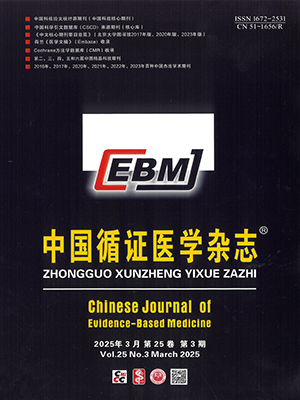| 1. |
[1]Duquesnoy RT, Li YP. Editor-in-chief. Transplant Immunobiology 1st ed. Beijing: Science Press, 2003; 376Duquesnoy RT,.
|
| 2. |
李幼平,主编.移植免疫生物学[M].北京:科学出版社,2000;376.
|
| 3. |
[2]US Renal Transplant Mycophenolate Mofetil Study Group.Mycophenolate mofetil in cadaveric renal transplantation. Am J Kidney Disease[ J]. 1999; 34 (2): 296-303.
|
| 4. |
[3]DanovithGM. Mycophenolatemofetilinrenaltransplantation [J].Kidney International, 1995; 52(suppl): 93-96.
|
| 5. |
[4]Miller J, Mendez R, Pirsch JD, Jensik SC. Safety and efficacy of tacrolimus in combination with mycophenolate mofetil in cadaveric renal transplant recipients [ J ]. Transplantation,2000; 69(5): 875-880.
|
| 6. |
[5]Ahsan N, Johnson C, Gonwa T, Hallorax P, Stegall M,Hardy M, Metzger R, Shield C, Rocher L, Scandling J.Randomized trial of tacrolimus plus mycophenolate mofetil or azathioprine versus cyclosporine oral solution (modified) plus mycophenolate mofetil after cadaveric kidney transplantation:results at 2 years[J]. Transplantation,2001; 72(2): 245-250.
|
| 7. |
[6]The Mycophenolate Mofetil Acute Renal Rejection Study Group. Mycophenolate mofetil for the treatment of a first acute renal allograft rejection: three-year follow-up [ J ].Transplantation, 2001; 71 (8): 1091-1097.
|
| 8. |
[7]Johnson C, Ahsan N, Gonwa T, Hallorax P, Stegall M,Hardy M, Metzger R, Shield C, Rocher L, Scandling J.Random trial of tacrolimus in combination with azathioprine or mycophenolate mofetil versus cyclosponne with mycophenolate mofetil after cadaveric kidney transplantation[J]. Transplantation, 2000; 69 (5): 834-841.
|
| 9. |
[8]Jirasiritham S, Sumethkul V, Mavichak V, Chalermsanyakom P. The treatment of chronic rejection with mycophenolate mofetil versus azathioprine in kidney transplantation [ J ].Transplant Proc, 2000; 32(7): 2040-2042.
|
| 10. |
[9]Suhail SM, Vathsala A, Lou HX, Woo KT. Safety and efficacy of mycophenolate mofetil for prophylaxis in Asian renal transplant recipients [ J ]. Transplant Proc, 2000; 32 (7):1757-1758.
|
| 11. |
[10]MathewTH. Ablinded, long-time, randomizedmulticenter study of mycophenolate mofetil in cadaveric renal transplantation: result at three years [ J ]. Transplantation,1998; 65(11): 1450-1454.
|
| 12. |
[11]Mendez R. FK 5 0 6 and mycophenolate mofetil in renal transplant recipients: six-month result of a multicenter,randomized dose ranging trial. Transplantation Proc, 1998; 30(4): 1287-1289.
|
| 13. |
[12]The Mycophenolate mofetil Acute Renal Rejection Study Group. Mycophenolate mofetil for the treatment of a first acute renal allograft rejection [ J ]. Transplantation, 1998; 65(2): 235-241.
|
| 14. |
[13]Neylan JE. Immunosupppressive therapy in high-risk transplant patients: dose-dependent efficacy of mycophenolate mofetil in African-American renal allograft recipients [ J ].Transplantation, 1997; 64(9): 1277-1282.
|
| 15. |
[14]The U. S. Mycophenolate Mofetil Study Group. Mycophenolate mofetil for the prevention of acute rejection of primary cadaveric kidney transplants: status of the MYC 1866 study at 1 year[J]. Transplant Proc, 1997; 29(1-2): 348-349.
|
| 16. |
[15]Halloran P, Mathew T, Tomlanovich S, Groth C, Hooftman L, Barker C. Mycophenolate mofetil in renal allograft recipients: a pooled efficacy analysis of three randomized,double-blind, clinical studies in prevention of rejection [J ].Transplantion, 1997; 63(1): 39-47.
|
| 17. |
[16]The Tricontinental Mycophnolate Mofetil Rneal Transplantation Study Group. A blinded, randomized clinical trial of mycophenolate mofetil for the prevention of acute rejection in cadaveric renal transplantation[J]. Transplantation, 1996; 61(7): 1029-1037.
|
| 18. |
[17]Solinger HW. Mycophenolate mofetil for the prevention of acute rejection in primary cadaveric renal allograft recipients[J]. Transplantation, 1995 ;60(3) :225-232.
|
| 19. |
[18]European Mycophenolate Mofetil Cooperative Study Group.Mycophenolate in renal transplantation: 3-year results from the placebo-controlled trial [J ]. Transplantation, 1999; 68 (3):391-396.
|
| 20. |
[19]European Mycophenolate Mofetil Cooperative Study Group.Placebo-controlled study of mycophenolate mofetil combined with cyclosporin and corticosteroid for prevention of acute rejection[J]. Lancet, 1995; 345(8961): 1321-1325.
|
| 21. |
[20]ChoS, HodgeE, NavarroM. Mycophenolatemofetilimproves long-term graft survival following renal transplantation in patients experiencing delayed graft function [ J ].Transplantation Proc, 1999; 31 (1-2): 322-323.
|
| 22. |
[21]Ji YL,Yang YQ,Yang GB, Yu XQ, Jiang ZP, Cheng QD,Wu PG. The clinical investigation of mycophenolate mofetil for the prevention of acute rejection [ J ]. Acad J SUMS,2001; 22(3): 215-217.
|
| 23. |
纪玉莲,杨彦强,杨光宝,余学清,姜宗培,沈清端,吴培根,朱兰英.霉酚酸酯预防肾移植术后急性排斥反应临床观察[J].中山医科大学学报,2001;22(3):215-217.
|
| 24. |
[22]Huang LP, Yang SY, Wu XT, Cheng ZB, Wang ZX, Wei X. Clinical observation on the early application of cellcept following cadaveric renal tansplantation [ J ]. Chin J Organ Transplant, 2000; 21 (5): 294-295.
|
| 25. |
黄丽萍,杨诗玉,武小桐,陈再彬,王振兴,卫焘.肾移植患者术后早期应用霉酚酸酯的临床观察[J].中华器官移植杂志,2000;21(5):294-295.
|
| 26. |
[23]Hongbo G, Yuhai Z. The use of mycophenolate mofetil in renal tansplantation[J]. China J New Drug, 1998; 7 (6):444-446.
|
| 27. |
郭宏波,张玉海.霉酚酸酯(MMF)在肾移植中的应用[J].中国新药杂志,1998;7(6):444-446.
|
| 28. |
[24]Ling JY, Zhu Y, Shun FK. Combined use of MMF with low dosage of cyclosporine A in renal tansplantation[J ]. Chin J Organ Transplant, 1998; 19(3): 175-176.
|
| 29. |
凌建煜,祝宇,孙福康.骁悉与小剂量环孢素A在尸体肾移植中的联合应用[J].中华器官移植杂志,1998;19(3):175-176.
|
| 30. |
[25]Wang QW, Ji SM, ChengJS, Ying LP, Xu B, Cheng HP,Li LS. Prevention acute rejection of MMF in renal tansplantion [J]. J Nephrol Dialy Transplant, 1998; 7 (1): 34-37.
|
| 31. |
王庆文,季曙明,陈劲松,陈劲松,殷立平,徐斌,陈惠萍,黎磊石.霉酚酸酯预防尸体肾移植急性排斥反应[J].肾脏病与透析肾移植杂志,1998;7(1):34-37.
|
| 32. |
[26]European Mycophenolate Mofetil Cooperation Study Group.Mycophenolate mofetil in renal transplantation: 3-year results from the placebo-controlled trial [J ]. Transplantation, 1999;68(3): 391-396.
|




